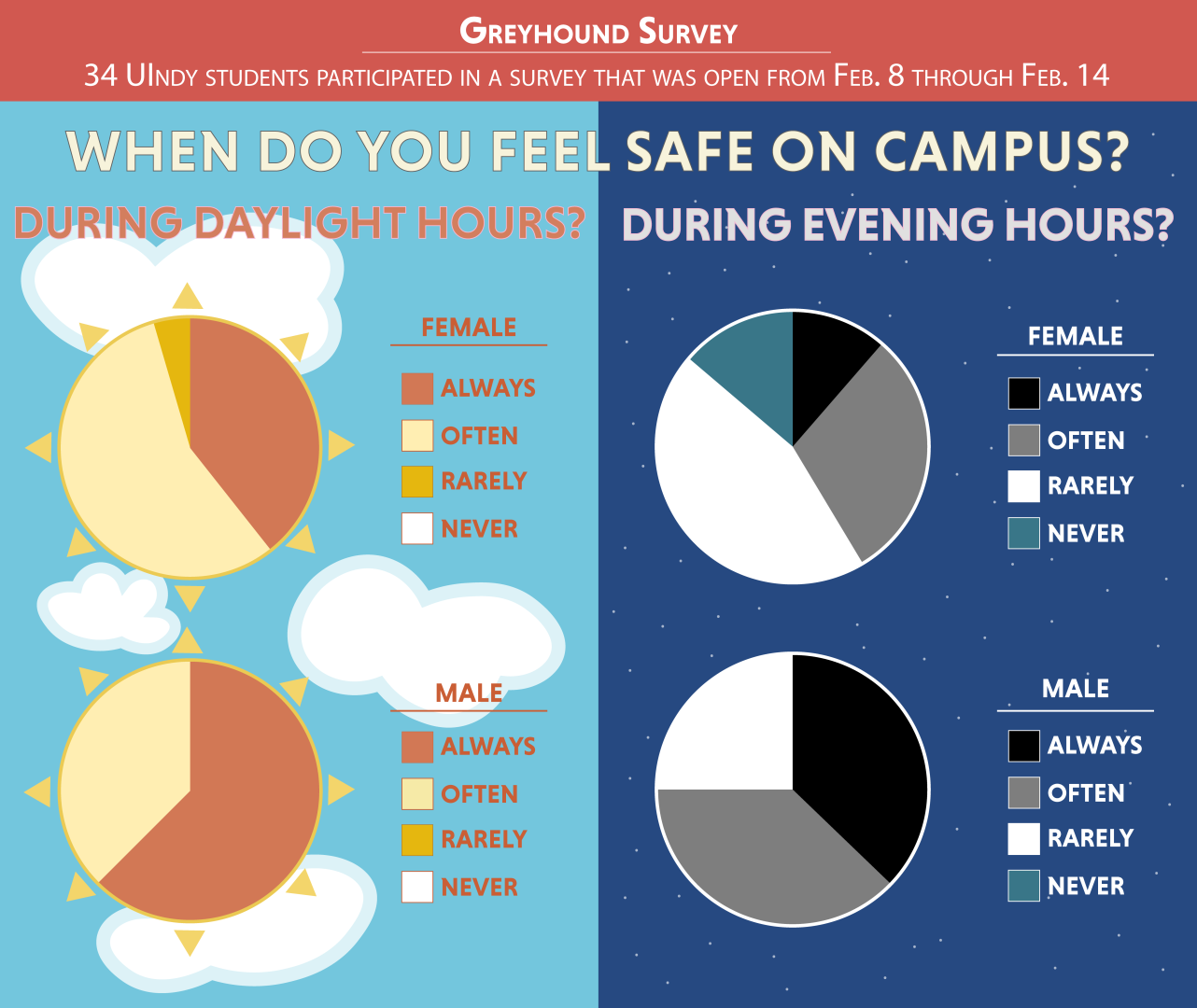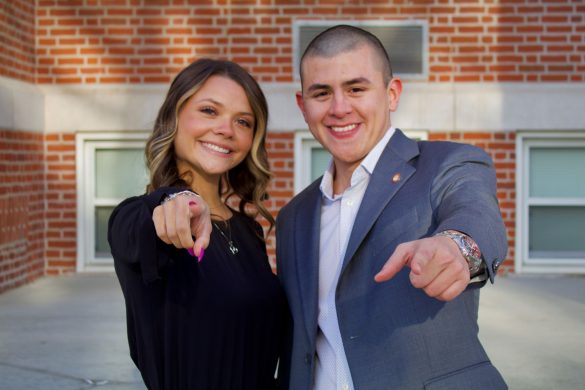School safety has been a big concern for me since I was in elementary school. I was only 10 years old when the Sandy Hook Elementary School shooting happened in 2012. Since then, my anxiety has grown in tandem with the number of school shootings that happen everywhere in the U.S. According to CNN, there were 82 school shootings in 2023 including incidents at colleges and universities. However, I find some solace as a college student knowing that if a crime were to happen on campus, it’s less likely to be a mass murder event—but that doesn’t mean I have nothing to worry about.
While I still live with the fear of a gunman on campus, the horrible truth is that school shootings mostly occur at elementary schools. According to the most recent statistics reported by Best Colleges, the most commonly reported crimes on college campuses in 2021 were burglary (23%), rape (21%) and motor vehicle theft (19%). Furthermore, 42% of all reported crimes on campuses qualified as Violence Against Women Act (VAWA) offenses. Looking specifically at UIndy in 2021 using the UIndy Police Department’s Annual Security Report, there were 13 incidents of burglary, four incidents of rape and nine incidents of motor vehicle theft. Safety did improve in 2022 in these categories, with seven incidents of burglary, zero incidents of rape and zero incidents of motor vehicle theft.
However, the data on VAWA crimes at UIndy during the same time is not as positive, per the 2021 and 2022 UIndy security reports. In 2021, there were 10 incidents of stalking, six incidents of dating violence and zero incidents of domestic violence. In 2022, there were five incidents of stalking, four incidents of dating violence and three incidents of domestic violence. As a young woman myself, this data is incredibly discomforting. I was already uneasy while walking around campus before I even knew this information.
Of course, there is no college campus where absolutely no crime ever occurs. However, not every college campus is located in Indianapolis, where the violent crime rate is higher than similarly sized metro areas in the nation, according to U.S. News. And it seems like those that are located in Indianapolis—with similar student populations to UIndy—have better security in place. Butler University’s website says that a university ID card is needed to access buildings, some classrooms, meeting spaces and offices. At UIndy, residence buildings always require an ID card, but most campus buildings do not require a swipe-in 24/7. In an anonymous survey I created asking about campus security at UIndy, students complained about a lack of accountability for people being let into residence halls. This makes it a lot easier for suspicious individuals to walk in unnoticed, which is an unsettling thought.
Looking at Butler’s Annual Security Report, the incidents of burglary and motor vehicle theft in 2022 are less than at UIndy. Yet, the VAWA incidents are similar or worse: 10 incidents of rape, 12 incidents of stalking, seven incidents of domestic violence and zero incidents of dating violence. I think I am noticing a trend here.
It appears to me that even when universities improve safety and security measures, the number of crimes committed largely against women remains high. And access to things like a Title IX coordinator, anonymous reporting and the Health and Counseling Center are not preventative but are there for when sexual violence has already taken place. Sometimes, it feels like the online training about consent and the Title IX presentations do more to remind me to be afraid than to remind people to respect women. In the aforementioned survey, the popular sentiment was that security is fine on campus, but UIndy is just located in a dangerous neighborhood. What is every other university’s excuse then? For some populations, it seems that safety and security are rarely guaranteed. And I am not just referring to women—hate crimes on college campuses are on the rise, according to a recent report by the FBI, with Black, Jewish and LGBTQ+ students being the most targeted. While better security measures certainly do not harm college campuses, universities need to focus on active advocacy for the marginalized.









